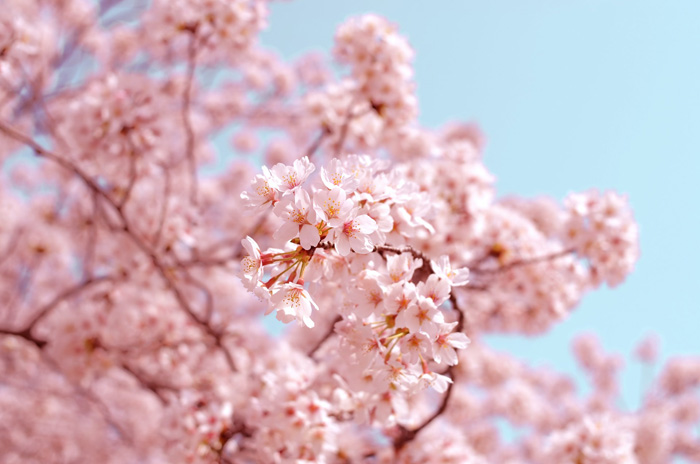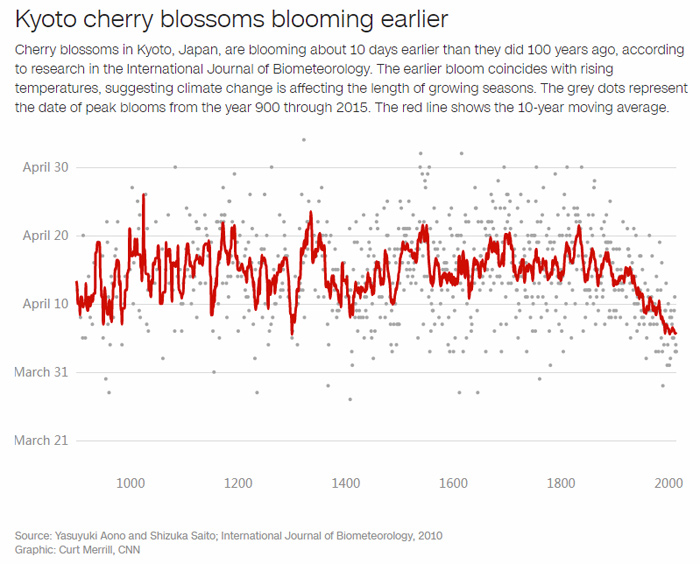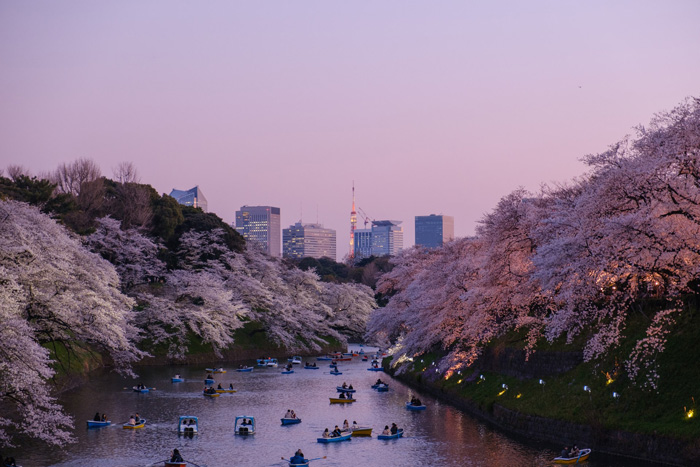
| 双语新闻 Bilingual News | 双语对照阅读 分级系列阅读 智能辅助阅读 在线英语学习 |

| 双语新闻 Bilingual News | 双语对照阅读 分级系列阅读 智能辅助阅读 在线英语学习 |
| [英文] [中文] [双语对照] [双语交替] [] |

| Think of Japan in the spring, and the image that comes to mind is likely the country's famous cherry blossoms, also known as "sakura" -- white and pink flowers, bursting across cities and mountains, petals covering the ground. |
| The flowers, which experience a "peak bloom" that only lasts a few days, have been revered in Japan for more than a thousand years. Crowds celebrate with viewing parties, flocking to the most popular locations to take photos and have picnics underneath the branches. |
| But this year, cherry blossom season has come and gone in the blink of an eye, in one of the earliest blooms on record -- and scientists warn it's a symptom of the larger climate crisis threatening ecosystems everywhere. |
| Yasuyuki Aono, a researcher at Osaka Prefecture University, has gathered records from Kyoto back to 812 AD from historical documents and diaries. In the central city of Kyoto, cherry blossoms peaked on March 26, the earliest in more than 1,200 years, Aono said. |
| And in the capital Tokyo, cherry blossoms reached full bloom on March 22, the second-earliest date on record. |
 |
| "As global temperatures warm, the last spring frosts are occurring earlier and flowering is occurring sooner," said Dr. Lewis Ziska from Columbia University's Environmental Health Sciences. |
| The peak bloom dates shift every year, depending on numerous factors including weather and rainfall, but have shown a general trend of moving earlier and earlier. In Kyoto, the peak date hovered around mid-April for centuries, according to Aono's data, but began moving into early April during the 1800s. The date has only dipped into late March a handful of times in recorded history. |
| "Sakura blooms are very temperature sensitive," said Aono. "Flowering and full bloom could be earlier or later depending on the temperature alone," he said. "The temperature was low in the 1820s, but it has risen by about 3.5 degrees Celsius to this day." |
| This year's seasons in particular influenced the blossom dates, he added. The winter was very cold, but the spring came fast and unusually warm, so "the buds are completely awake after enough rest." |
 |
| Their early bloom, however, is just the tip of the iceberg of a worldwide phenomenon that could destabilize natural systems and countries' economies, said Amos Tai, assistant professor of earth science at the Chinese University of Hong Kong. |
| There are two sources of increased heat, which is the main factor making the flowers bloom earlier: urbanization and climate change. With increased urbanization, cities tend to get warmer than the surrounding rural area, in what is called the heat island effect. But a bigger reason is climate change, which has caused rising temperatures across the region and the world. |
| And these earlier dates aren't just a matter of tourists scrambling to catch peak bloom before the petals all fall -- it could have a lasting impact on entire ecosystems, and threaten the survival of many species. |
| Different plants and insects may respond to the rise in heat at different paces, throwing their life cycles out of sync. Whereas they once timed their growth simultaneously each spring, now flowers may bloom before insects are ready, and vice versa -- meaning "the insects may not find enough food to eat from the plants, and the plants don't have enough pollinators (to reproduce)," Tai said. |
 |
| "Ecosystems are not accustomed to these kinds of large fluctuations, it causes them a lot of stress," he said. "Productivity may be reduced, and ecosystems may even collapse in the future." |
| This year's change in flowering dates isn't limited to just Japan; the cherry blossoms that adorn the Tidal Basin in Washington, DC, have also bloomed early. According to the National Park Service, the peak bloom date of the Washington cherry blossoms has advanced forward by nearly a week from April 5th to March 31. |
| And the effects of climate change aren't just limited to cherry blossoms. The same phenomenon is already happening to many crops and economically valuable plants, Tai said -- posing big problems for food security and farmers' livelihoods. Food supplies in some of the most vulnerable regions in the world are being directly affected by droughts, crop failures and locust swarms. |
| "Agriculture now is more like a gamble, because climate change is randomizing the things happening in our ecological systems." Tai added. |
OK阅读网 版权所有(C)2017 | 联系我们